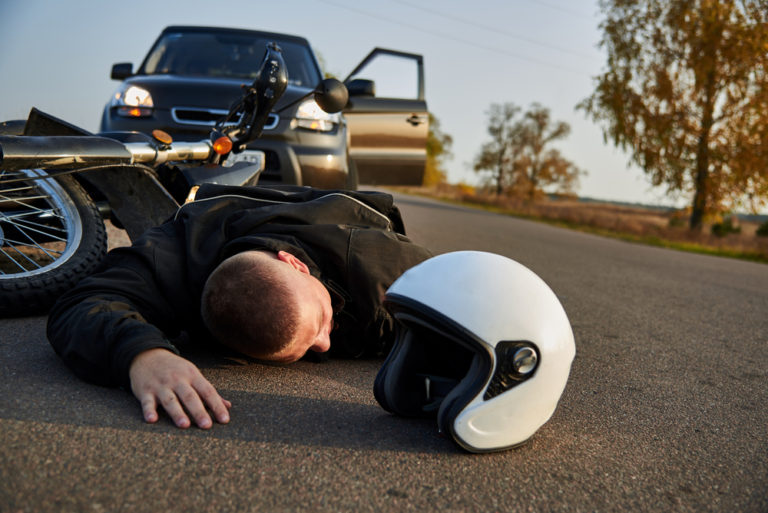In many cases, especially drugged driving prosecutions, the state relies almost exclusively on the three approved Field Sobriety Tests to establish guilt. So, a Kona DUI lawyer must undermine this evidence in order to successfully resolve the case. That’s also true in Breathalyzer cases. If the defendant does not appear intoxicated in the field tests, many jurors doubt the accuracy of a chemical test.
There is a lot at stake. A DWI might cost up to $25,000 when including direct and indirect expenses. Other losses, such as possible employment and family law effects, are not quantifiable in dollars and cents.
Apropos of nothing, defendants have the right to refuse to perform field tests under the Fifth Amendment. This refusal cannot be used against them in court.
Romberg’s Balance Test
This test, which was developed by German scientist Moritz Romberg in the 1800s, measures balance ability. Subjects must stand straight with their arms extended, their heads back, and their eyes closed. Officers sometimes add additional requirements, such as touching fingertips to the nose.
In some cases, a Kona DUI lawyer might be able to get these results thrown out of court without much effort. The Romberg test, although it is a staple of many police stops, is not approved by the National Highway Traffic Safety Administration. Since it has no scientific basis, it is arguably useless in court as a way to determine intoxication.
In other cases, however, it might be better to allow prosecutors to introduce these test results. Essentially, that’s like giving them enough rope to hang themselves. Many officers, and many Kona DUI lawyers as well, are unfamiliar with the test’s theory. Romberg’s Test deprives the subject of the three things needed for balance, which are:
- Vestibular function (knowing the position of one’s head in space),
- Proprioception (knowing one’s body position), and
- Vision.
If an officer cannot adequately explain these complex concepts to jurors, they often get the idea that the state is manufacturing evidence against the defendant.
Kona DUI Lawyers and the Horizontal Gaze Nystagmus Test
The DUI eye test does not have much scientific basis either. This test does accurately detect nystagmus, a condition also known as lazy eye. But intoxication is not the only cause, or even the leading cause, of nystagmus. IN fact, many people have a lazy eye. They just do not know it, since the symptoms are so mild. So, many people could not pass an HGN test whether they were drunk or sober.
Additionally, roadside HGN test conditions are uncontrolled. Squad car lights flash in the background, and cars whiz by at high speeds. Most officers fail to account for these variables when they score the test.
Because of these deficiencies, many Hawaii County judges only admit HGN test results for limited purposes. If that happens, Kona DUI lawyers might only need to worry about the last two. Anda again, a lawyer only needs to create reasonable doubt.
The Walk and Turn Test
The heel-to-toe walk test also suffers from a number of environmental problems. Footwear is one example. Obviously, it’s almost impossible to walk heel to toe in flip flops, heels, or cowboy boots. Officers usually give these defendants the option to remove these shoes. Unfortunately, it’s just as difficult to walk heel to toe barefoot.
During this test, which usually involves walking about fifteen steps heel to toe forward and backward, officers look for a number of intoxication clues, such as:
- Beginning the test before the officer says “start,”
- Leading with the wrong foot,
- Stumbling,
- Swaying,
- Taking the incorrect number of steps,
- Using arms or hands for balance, and
- Ending the test before the officer says “stop.”
Nearly everyone “fails” this test, because no one can do all these things flawlessly. Fortunately, the officer’s conclusion is only an opinion. Jurors decide for themselves whether the defendant passed or failed, and their conclusion is the only one that counts.
The One Leg Stand Test
By the time defendants get to the OLS, they are mentally and physically fatigued. However, officers usually never account for this fatigue when they score the test.
Much like the WAT, the OLS is a divided attention test that measures physical dexterity and mental alertness. If the defendant has any mobility impairments, it’s nearly impossible to stand on one leg for more than a few seconds.
Tests for Highly Intoxicated DUI
As FSTs are subjective, the prosecution has a difficult time proving a defendant qualifies for highly intoxicated DUI without a breathalyzer- or blood test. However, these tests also involve subjectivity and margins for error. As a result, a Kona DUI attorney can often negotiate a lower charge or win a dismissal. The standards for highly intoxicated DUI are as follows:
- .15 or more grams of alcohol per 100 millimeters of a person’s blood
- .15 or more grams of alcohol per 210 liters of breath
Defending against a highly intoxicated DUI charge is extremely important. Defendants face mandatory time in jail plus up to three years of license revocation. A Kona DUI lawyer can get highly intoxicated DUI charges reduced or dismissed, resulting in no jail time and shorter or no revocation.
Our Skilled Kona DUI Attorneys Will Protect Your Rights
DUI charges can be difficult to defend as they are based on the first-hand observations of a police officer and determined, to a great extent, by the results of various field sobriety tests. A DUI charge can result in several penalties that can directly impact your reputation, finances, career, personal life, and more. However, help is at hand. If you or your loved one was involved in a DUI in Kona, seek strong legal representation as soon as possible. Call our experienced Kona DUI attorneys at 808-331-3113 in Kona for legal consultation today!




